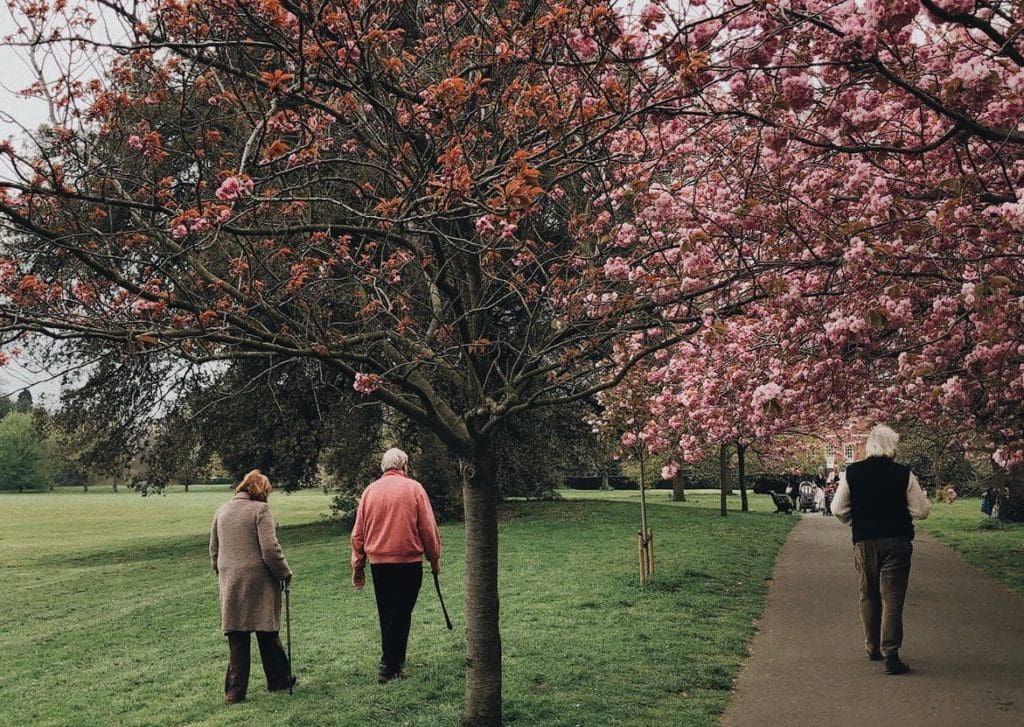
By Kait Spielmaker
On December 12th, Danielle Arigoni, Author and Managing Director for Policy and Solutions at the National Housing Trust, joined America Walks to discuss her new book Climate Resilience for an Aging Nation. Danielle’s presentation called on us to consider the effect of climate change on our aging population, and the policy changes we will need to protect an increasingly vulnerable group.
The Reality of Climate Change

Extreme weather events, from wildfires to storms to fluctuating temperatures, are becoming more frequent and severe, leaving devastation in their wake. The data revealed a staggering increase in billion-dollar disasters, signaling the urgent need for comprehensive strategies to mitigate climate-related risks.
The Aging Population
By 2034, there will be more people over 65 than under 18 in the US, marking a historic turning point. This demographic change is not only about numbers but also about diversity, with higher growth rates among older adults in black, Asian, and Latino populations.
Unveiling the Truths of Aging
To truly grasp the impact of these trends, Danielle unveiled some inherent truths about aging that often escape mainstream understanding. These include the fact that one in six older adults lives in poverty, nearly 30% live alone, and a significant percentage face cognitive decline, ambulatory limitations, and multiple chronic medical conditions. Acknowledging these realities is pivotal in guiding our work, especially when striving to create safer and more inclusive communities.

Building Age-Friendly, Climate Resilient Communities
A key takeaway is the need for age-friendly communities that are resilient to climate change. From accessible and affordable housing to reliable transportation and green spaces, these communities should cater to the diverse needs of older adults. Collaboration between different sectors, including engineering, healthcare, and urban planning, is crucial in achieving this vision.
Other Key Takeaways When Addressing This Issue
- Use Technology Thoughtfully
- Collaborate with Community Organizations
- Implement Age-Friendly Planning
- Host Intergenerational Events
- Provide Transportation Solutions
- Conduct Surveys and Focus Groups
- Train Community Leaders and Volunteers
- Cultivate Trust and Cultural Competency
- Celebrate Success Stories
By implementing these strategies, local governments and agencies can create a more inclusive and age-friendly approach to community planning and development. It’s essential to recognize the diversity within the older adult population and actively seek out their voices in the decision-making process.
Urgent Call to Action
Danielle concluded with a call to action, emphasizing the urgent need to reverse the 20-year trend of neglecting the intersection between climate risks and an aging population. It’s not merely about understanding the issues; it’s about actively working towards solutions. The author, motivated by this urgency, has committed to contributing to the cause through her book, Climate Resilience for an Aging Nation.